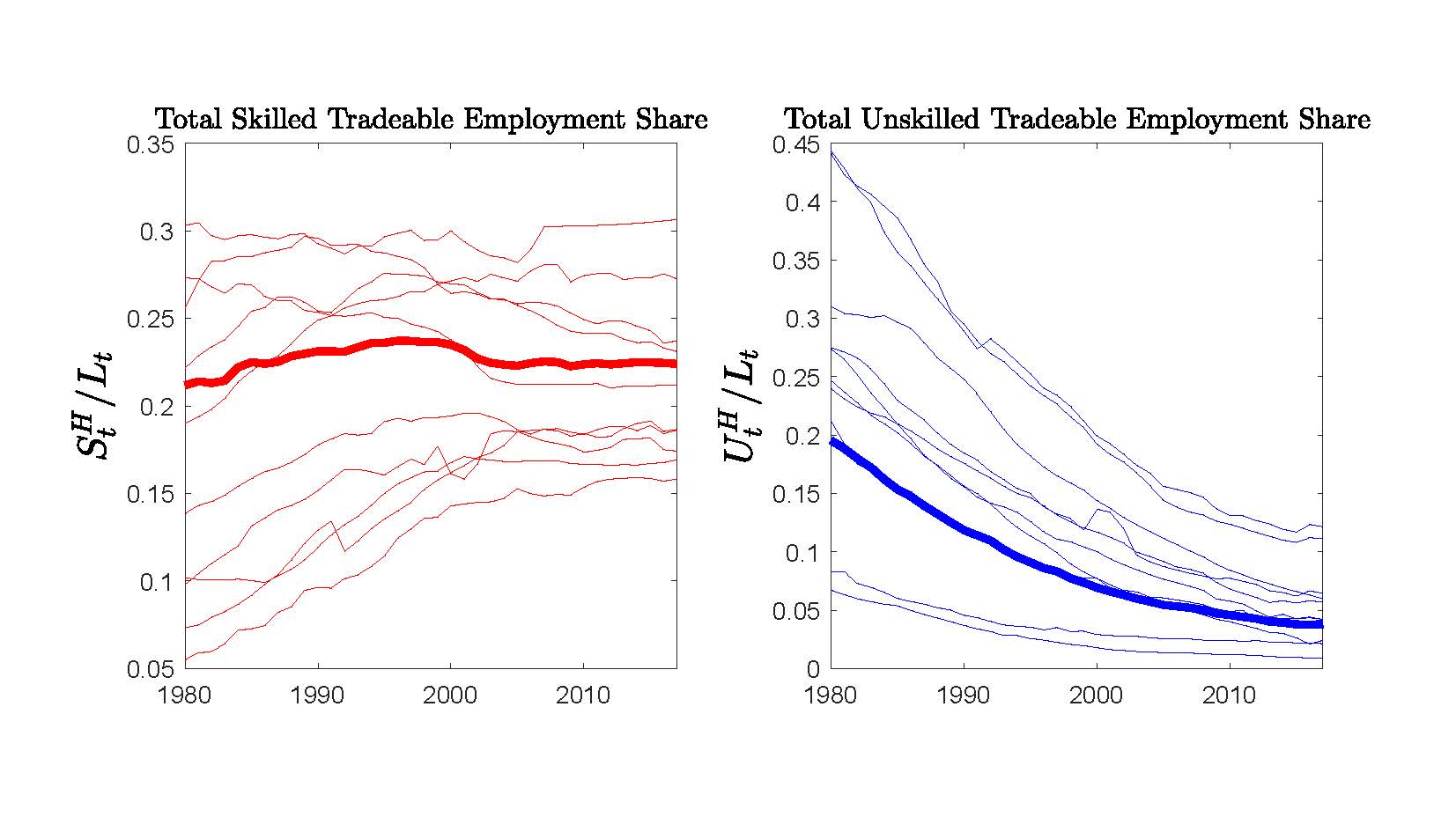Newsletter : “Skill-Bias Technological Change and Deindustrialization”
15 June 2023

Deindustrialization research project. Newsletter 9: ‘Skill-Bias Technological Change and Deindustrialization’. This research work is sponsored by Leverhulme Trust RPG-2019-34
We are happy to share our ninth Newsletter which is available on the website https://sites.google.com/view/structual-change/home In this Newsletter, we show that skill-biased technological change is responsible for the reallocation of unskilled labor away from traded industries and toward non-traded industries in OECD countries over 1980-2017.
While deindustrialization is rooted into the concentration of technological change toward traded industries which causes a reallocation of labor toward non-traded industries, the deindustrialization trend is amplified by factor-biased technological change. Because technological change is strongly biased toward capital within the traded sector, more labor shifts toward non-traded industries. As shown in the two graphs, this deindustrialization trend does not affect workers homogenously as unskilled labor is disproportionately hit by deindustrialization in OECD countries. More specifically, technological change is biased toward skilled labor in both traded and non-traded industries, and skill-biased technological change tends to be more pronounced in traded industries. While technological change biased toward capital lowers the demand for both skilled and unskilled labor in the traded sector, technological change biased toward skilled labor in exporting industries further drives down the demand for unskilled labor, thus leading unskilled workers to shift toward non-traded industries (see the right-hand side figure). In other words, because automation and robotization of production chains has increased dramatically the productivity of unskilled labor in traded industries, exporting firms need less unskilled labor which thus reallocates toward non-exporting industries. By contrast, as shown in the left-hand side figure, technological change biased toward skilled labor tends to mitigate the deindustrialization trend for skilled labor caused by technological change biased toward capital.
In the next Newsletter, we explore the impact of differences in the stock of ideas (as measured by the stock of R&D) across sectors in driving international differences in the long-run movement in the value-added-share of tradables at constant prices.
Olivier Cardi, Ben Caswell and Romain Restout






